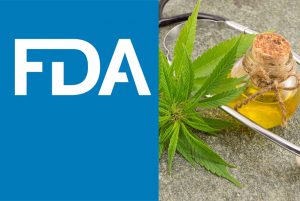
The cannabis industry wants a single set of rules, but entrepreneurs aren’t sure what those rules should be.
At Friday’s landmark cannabis review by the U.S. Food and Administration (FDA), CBD manufacturers joined with academics, consumer packaged goods manufacturers and agriculture officials to ask a panel of regulators to give the cannabis industry a uniform set of guidelines for producing, packaging and labeling cannabis extracts.
“We need clear, simple, consistent, national regulations,” Betsy Booren of the Grocery Manufacturers Association said.
The FDA review was the result of hemp no longer being a controlled substance, leading to countless new hemp-derived products being sold in stores and online.
Dr. Ned Sharpless, acting head of the FDA, made clear that dosing is going to figure largely in the FDA’s approach to cannabis-derived products in food, drugs and cosmetics.
“While we have seen an explosion of products containing CBD, there is still much that we don’t know about them,” Sharpless said.
“How much CBD is safe for a consumer per day? How much is too much?”
The dosing challenge also came up when a Colorado doctor testified about families treating epileptic children with CBD.
Asked how parents can know how much CBD to give their kids, Dr. Kevin Chapman was blunt.
“They’re making it up as they go along,” he said, speaking on behalf of the American Epilepsy Society.
Sharpless gave no indication how long it would take the FDA to answer dosing questions or to establish any other rules that would bring a national standard to the CBD industry.
Urgency, though, was the resounding call from hemp entrepreneurs and other businesses alike.
“Congress clearly intended on having hemp-derived products available to consumer as foods and dietary supplements,” said Jonathan Miller of the U.S. Hemp Roundtable, who called for interim CBD standards to mirror other dietary supplements.
Other key takeaways from the FDA’s hearing on cannabis-derived products:
- Pharmaceutical companies are skeptical. The only manufacturer with an FDA-approved drug from cannabis, GW Pharmacuticals, gave the FDA a skeptical view on allowing CBD in over-the-counter food and dietary supplements. GW Vice President Alice Mead asked federal regulators to “maintain the integrity of the FDA-approval process for medicines.” Mead didn’t identify any other CBD manufacturers but pointed out that the extract can cause liver problems and sleepiness. She also noted that extracts from hemp can have elevated THC levels.
- Veterinarians want answers. The American Veterinary Medical Association asked for guidance on whether cannabinoids can be safely given to pets and farm animals. “The FDA should clearly articulate where various cannabis-derived products fall,” Dr. Ashley Morgan said. Morgan inadvertently got the whole 500-seat room laughing when an FDA panelist asked if veterinarians are giving pet owners CBD. “No,” Morgan said. After a long pause, she added, “Not legally.”
- Some states aren’t waiting on federal rules. A North Carolina official told the FDA that without federal action, more states are simply going to develop their own production guidelines. “Without the FDA’s guidance and leadership … the patchwork approach will go on,” Joseph Reardon of the North Carolina Department of Agriculture said.
- Many don’t know CBD is unregulated. FDA officials seemed keenly interested in a CBD consumer survey presented by Lisa Gill, deputy editor of Consumer Reports. She said that in a survey of 4,355 adults, published in January, 46% of respondents were “extremely” or “very confident” that there are regulations in place to make sure CBD is tested for safety and efficacy.
Kristen Nichols can be reached at [email protected]

